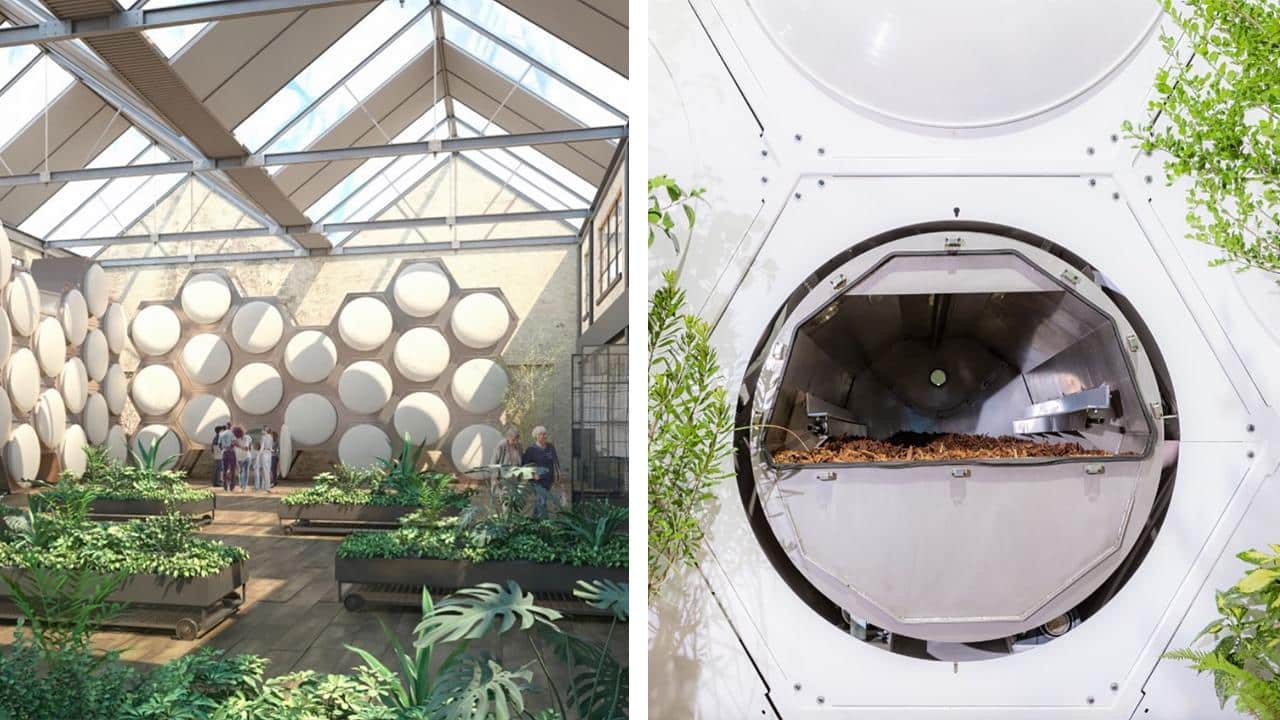

recomposelife / Instagram
For those who have dedicated their lives to heal and protect the planet, how do you honor that sacrifice after death? This is a question that has been on the minds of environmental activists for decades. Both cremations and traditional burials cause environmental damage that is not easy to reconcile. However, that is all changing with Recompose, a Seattle company that has recently opened the nation’s first human composting funeral home, according to the Seattle Times.
Recompose offers an innovative funeral service that turns human remains into healthy soil. This service gives Washington state and surrounding residents a chance to make a positive environmental change through their death as well as their life.
In 2019, Governor Jay Inslee passed a bill legalizing composting as a form of human burial. This radical legislation — the first of its kind in the nation — was first inspired by Recompose’s founder Katrina Spade and her idea for composting as an eco-conscious burial process. Spade and her neighbor Senator Jamie Pedersen pushed for the bill ardently, and in 2019 were finally successful.
Nearly a decade of research and development went into the founding of Recompose. Their website explains, recomposition “uses the process of ‘natural organic reduction’ to gently convert human remains into soil.” Those kept at the Recompose funeral home are given an optional service and are then placed in mausoleum-like chambers where the composting process begins.
Katrina Spade, like many environmental activists, was frustrated with the limited options for environmentally friendly burial services. Due to the embalming process that most funeral homes use, burial sites are a major source of groundwater pollution. One of the most common embalming chemicals, formaldehyde, is classified as a carcinogen. Prior to the 2019 bill, the only legal and eco-friendly burial options were natural burial sites. There are only 160 of these sites in the entire country, so for those who don’t have access to one of those, eco-friendly options are non-existent.
Now, those in the Pacific Northwest have an option that saves an entire metric ton of CO2 in their burial process. While body pickup is only available in King, Pierce, and Snohomish counties, the facility is accepting clients throughout the Northwest.
The entire service, including ceremony, obituary, death certificate, and transformation, is ,500. After the composting process is complete, family members can choose to keep the soil or donate it to the Bells Mountain conservation forest. This forest restoration project welcomes family members to visit and see the real impact their loved one has made on the local environment.
Charlotte Bontrager, who was one of the first to take a deceased family member to Recompose, said about the process, “My mom was a very humble, loving person and would not want any kind of spotlight. But she’d be thrilled to know she was among this first group of pioneers.”
Because of Katrina Spade and the Washington legislature’s hard work, many more will have the opportunity to make a meaningful contribution to the Earth in their passing. To learn more about the program and services, you can visit their website.

 233k
233k  41k
41k  Subscribe
Subscribe 